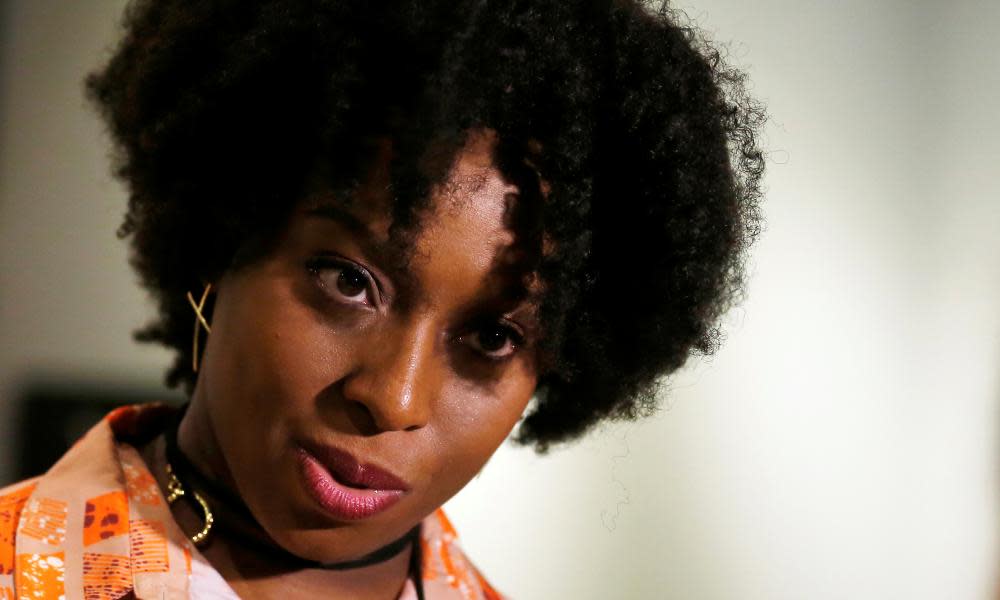Notes on Grief by Chimamanda Ngozi Adichie review – the malicious surprise

On 10 June 2020, the writer Chimamanda Ngozi Adichie experienced “the worst day of my life. There is such a thing as the worst day of life, and please, dear universe, I do not want anything ever to top it.” Her beloved father had died suddenly at the age of 88. She had talked to him only the day before, on a Zoom call from her home in Maryland to her parents’ in Abba, south-east Nigeria. Every Sunday, the family – a brother in England, two siblings in Lagos and three in the US – had engaged, like so many the world over, in a new routine of remote communication: “our boisterous lockdown ritual”. In the book, she recalls her last moments with her father. “On 8 June Okey [Adichie’s brother in Lagos] went to Abba to see him and said he looked tired. On 9 June, I kept our chat brief, so that he could rest. Ka chi fo, he said. Good night. His last words to me.” When another brother, Chuks, telephones to let her know the awful news, she recalls: “I came undone.”
Notes on Grief, written during the weeks and months following the death, (it first appeared as an essay in the New Yorker) is both emotional and austere, a work of dignity and of unravelling. Spare and yet spiritually nutritious, the book serves as a reflection of Adichie’s turmoil in loss. It is also an exquisitely written tribute to her father, James Nwoye Adichie, who was Nigeria’s first professor of statistics : his self-effacement, sense of calm and wry humour shine through. A lover of sudoku puzzles, he was fondly called “the original dada” by Adichie.
Grief manifests itself physically, she notes: an assault on the body and on the senses. The very atmosphere seems to change. “Is this what shock means, that the air turns to glue?” Anyone who has undergone a similar experience will understand the particular pathos of the adult child mourning the departed parent – the discombobulation, the anger at well-meaning but meaningless platitudes about a long life well lived. The gaping hole at the heart of the family, whose “shape” is “changed forever”. Even while family members weep and grieve together – again over Zoom, but now at an image of their newly dead father lying peacefully in hospital – Adichie recognises that as individuals “we mourn differently”.
Related: 'I am a pessimistic optimist': Chimamanda Ngozi Adichie answers authors' questions
The loss is acutely underlined by the pandemic. “It was not supposed to happen like this, not like a malicious surprise.” With the world locked down and Nigeria’s airports not open until August, and then September, the funeral is constantly postponed. Adichie’s mother is a bereft and stoic symbol “already … settled on the sofa in placid widow pose”. Later she will insist on the Igbo mourning tradition of shaving her head, despite her children’s protests: “I’ll do everything that is done. I’ll do it for Daddy.” Adichie grapples with the “Igbo way, the African way” of performative grief, and with her own position of being a public person suffering a private bereavement. She is in anguish for her brother, who has to check in at the morticians every week where he “witnesses again this so fiercely unwanted transubstantiation”. She rages at the fact that her father was burdened by a land dispute that darkened his final months. As the self-named Family Worrier, she is deeply concerned at the funeral’s delay: “To most Igbo people, at least those of my father’s generation, to be deprived of a proper funeral is an almost existential fear.”
Yet it is overwhelmingly the “never again” that preoccupies Adichie. Grief is specific but it is also, however hackneyed, universal. In Tony Harrison’s poem of parental death, “Long Distance II”, grief becomes the “disconnected number I still call”. Similarly for Adichie, “for the rest of my life, I will live with hands outstretched for things that are no longer there.”
Notes on Grief by Chimamanda Nigozie Adichie is published by 4th Estate (£10). To order a copy go to guardianbookshop.com. Delivery charges may apply.


